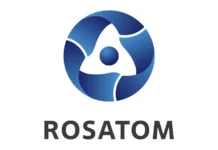Grasping the essence of company sustainability is pivotal in the contemporary business realm. It transcends mere compliance with regulations and nurturing a favorable public persona—it’s about forging a sustainable legacy. Whether at the helm of a burgeoning startup or steering a sprawling enterprise, the sustainability strategies you embrace today will sculpt your company’s trajectory.
Adopting sustainable practices not only bolsters operational efficiency and curtails costs but also fortifies your business model against future uncertainties. These strategies are a boon for the environment and also cultivate robust relationships with your stakeholders, consumers, and the local community. Below, discover pivotal strategies to guide your journey toward enduring corporate sustainability.
Implementing Green Technology Solutions
Adopting green technology solutions is a game-changer for your company sustainability agenda. By integrating energy-saving systems, renewable energy sources, and eco-friendly materials, you reduce your ecological footprint and pare down operational costs. Consider the benefits of solar panels or energy-efficient lighting—such changes can slash your utility expenses significantly.
Your commitment to green practices can boost your brand’s image. Customers and partners are increasingly drawn to businesses that demonstrate environmental stewardship. By actively promoting your sustainable initiatives, you attract a devoted customer base and forge durable alliances.
Exploring new sustainable technologies and practices can also spur innovation within your enterprise, leading to enhanced processes and pioneering products. This forward-thinking approach doesn’t just meet today’s demands—it equips your business for future challenges.
Promoting Resource Efficiency
Optimizing the use of materials, energy, and water can minimize waste and reduce costs. This involves conducting regular audits to identify areas where resources are being overused or wasted and implementing measures to address these issues.
One effective strategy for company sustainability is adopting a circular economy approach. This means designing products and processes that maximize resource use and minimize waste. For example, using recycled materials in production and implementing recycling programs within your company can significantly reduce your environmental impact.
Investing in training and awareness programs for employees can foster a culture of resource efficiency. When everyone in your company understands the importance of corporate social responsibility and knows how to contribute, you can achieve more significant results and drive long-term success.
Enhancing Supply Chain Sustainability
Extend your company sustainability efforts to encompass your supply chains. Partner with suppliers who mirror your sustainable values to magnify your impact. Evaluate their practices and encourage sustainable improvements.
Define explicit business sustainability criteria for choosing suppliers to ensure alignment with your ethical standards. This could include their environmental policies, labor practices, and sourcing methods. Working with suppliers that share your sustainability commitment can strengthen your supply chain and enhance your overall business resilience.
Open lines of communication and regular updates about your sustainability objectives and achievements are crucial. This fosters trust and encourages collaborative problem-solving, which can lead to innovative solutions and mutual benefits.
Investing In Employee Engagement
Your employees play a vital role in achieving company sustainability. Engaging them in sustainability initiatives can lead to more effective and innovative outcomes. Start by involving employees in setting sustainability goals and developing strategies. When employees feel invested in the process, they’re more likely to support and contribute to these efforts.
Providing education and training on sustainability topics can empower employees to make environmentally conscious decisions in their daily tasks. This might include workshops, seminars, or online courses on topics such as energy optimization and conservation, waste reduction, and sustainable business practices.
Recognizing and rewarding employees for their contributions to sustainability can boost morale and motivation. Creating a culture where sustainability is valued and celebrated can lead to a more engaged and committed workforce, driving long-term success for your company.
Fostering Community Engagement
Building strong relationships with the local area can enhance your company’s reputation and contribute to broader environmental and social goals. This can involve participating in or sponsoring community events, supporting local environmental initiatives, or collaborating with non-profit organizations.
Engaging with the community can also provide valuable insights and feedback. By understanding the needs and concerns of local stakeholders, you can tailor your sustainability efforts to address these issues more effectively. This collaborative approach can lead to more impactful and meaningful outcomes.
Promoting sustainability within the community can inspire others to adopt similar practices. By setting an example and sharing your successes, you can contribute to a larger movement towards sustainability and drive positive change beyond your company.
Monitoring And Reporting Progress
Effective monitoring and reporting are essential for tracking the progress of your company sustainability initiatives. Establishing clear metrics and regularly reviewing performance can help identify areas for improvement and ensure that your strategies are on track. This might involve setting specific targets for reducing energy consumption, waste, or greenhouse gas emissions.
Transparent reporting is crucial for maintaining credibility and accountability. Sharing your progress with stakeholders, customers, and the public can build trust and demonstrate your commitment to long-term success. This might include publishing annual sustainability reports or providing updates through your company’s website and social media channels.
Seeking external validation through certifications or third-party audits can enhance your company’s reputation. Recognitions such as LEED certification or ISO 14001 can provide assurance that your sustainability efforts meet high standards and contribute to your overall success.
Innovating For The Future
Innovation is key to achieving long-term company sustainability. Continuously exploring new technologies, practices, and business models can keep your company at the forefront of sustainability. This might involve investing in research and development or partnering with universities and research institutions to stay updated on the latest advancements.
Encouraging a culture of innovation within your company can also lead to breakthroughs in sustainability. Empower employees to think creatively and experiment with new ideas. This can result in innovative solutions that improve efficiency, reduce environmental impact, and drive competitive advantage.
Staying adaptable and responsive to emerging trends and challenges is equally crucial. The sustainability landscape is constantly evolving, and being proactive in addressing new issues can position your company for long-term success. By embracing change and continuously innovating, you can build a resilient and sustainable business model.
Final Words
Embedding company sustainability practices into your business strategy is crucial, not just a fleeting trend. By prioritizing green technology, resource efficiency, supply chain sustainability, employee involvement, community engagement, progress monitoring, and continual innovation, you create a strong and sustainable business.

These efforts benefit not just the environment but also enhance stakeholder value and solidify your standing as a sustainability leader. Commit to these strategies to guarantee your company’s prosperity now and for the future.








































